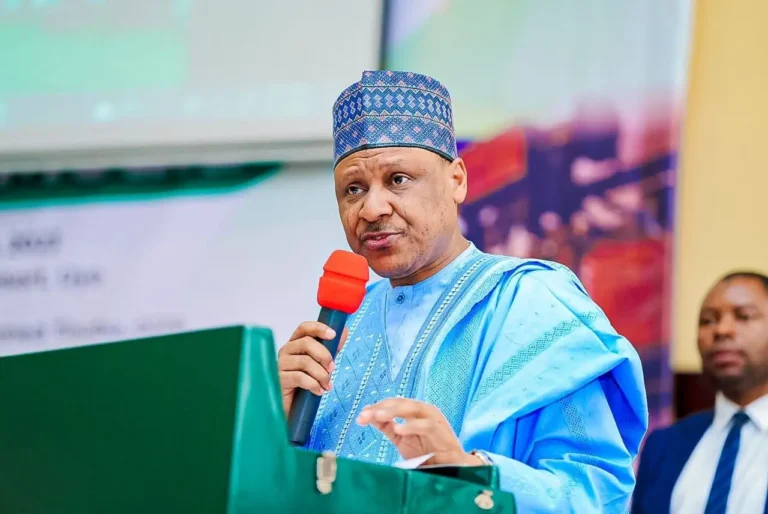As Nigeria navigates its burgeoning cryptocurrency landscape, the government seeks to balance innovation with necessary regulation, aiming to build a secure, inclusive digital economy that empowers its citizens.
Nigeria has emerged as one of the most active and dynamic crypto markets in recent years. From bustling tech hubs in Lagos to grassroots communities in smaller cities, young Nigerians have turned to cryptocurrencies to address fundamental economic challenges, from hedging against inflation to accessing global markets in a way traditional finance often does not allow.
As minister of information, I have seen firsthand how digital innovation has become crucial to the Nigerian story. Cryptocurrencies, blockchain technology and other digital assets are no longer on the fringes of our economy; they are fast becoming central to how our people transact, create and build.
This rise in crypto adoption has not, however, come without challenges. Questions around regulation, consumer protection, security and misuse of digital assets have fueled debates in Nigeria and globally. I write to clarify Nigeria’s position: We are committed to fostering an inclusive digital asset ecosystem that is both innovative and responsible.
Nigeria is a crypto hub
According to several international reports, Nigeria consistently ranks among the top countries in terms of crypto adoption. Our population — over 200 million strong, with a median age under 20 — is naturally inclined toward new technologies. Crypto has become more than a speculative tool; it’s a lifeline for freelancers, small businesses and families receiving remittances.
Yet despite the widespread use of cryptocurrencies, Nigeria has wrestled with how to regulate this sector effectively. Earlier approaches included restrictions on financial institutions from facilitating crypto transactions, which inadvertently pushed much of the activity underground, away from proper oversight.
Nigeria moves toward robust regulation
Under the administration of President Bola Ahmed Tinubu, Nigeria is reassessing its approach. We are moving away from blanket restrictions toward thoughtful, balanced regulation that acknowledges both the risks and the transformative potential of crypto and blockchain technologies.
Our objective is to create a regulatory framework that fosters innovation, ensures market integrity and protects Nigerian consumers. This involves active engagement with stakeholders from crypto startups and blockchain developers to international partners and regulatory bodies.
Nigeria’s stance is simple. We support innovation that benefits our people, but we will not allow misuse that harms them.
We recognize the legitimate use cases for cryptocurrencies, including:
- Financial inclusion for the unbanked and underbanked.
- Cross-border payments and remittances that avoid high fees.
- Access to global markets for Nigerian entrepreneurs and freelancers.
- New digital economies, such as decentralized finance (DeFi) and non-fungible tokens (NFTs), offer opportunities for wealth creation.
At the same time, we are determined to address concerns around fraud, money laundering, terrorism financing and other illicit activities. Effective regulation, rather than prohibition, is the path forward.
Nigeria and blockchain
Nigeria sees blockchain technology as more than just crypto trading. Blockchain can be a powerful governance, transparency and service delivery tool.
Already, conversations are underway on how blockchain can improve public systems, such as:
- Land registries to reduce fraud and strengthen property rights.
- Identity management systems to enhance financial inclusion.
- Supply chain monitoring to improve food security and public procurement.
A collaborative approach
Nigeria is not navigating this journey alone. As we develop new policies and frameworks, we look to global best practices and seek collaboration with international platforms and regulators.
We invite crypto companies, investors, innovators and advocates to engage with us. We aim to create a transparent and predictable environment where businesses can thrive while ensuring Nigerian citizens are protected from undue risks.
Nigeria’s approach to crypto is evolving, and with good reason. The potential for digital assets and blockchain to contribute to economic growth, job creation and financial empowerment is too significant to ignore.
To realize these benefits, we must build trust in the system through effective regulation, education and international cooperation.
To the global crypto community, I say this: Nigeria is open to innovation, but we are equally committed to ensuring that such innovation operates within a secure, transparent and inclusive framework.
We look forward to working together — for the benefit of Nigerians and the global advancement of responsible crypto adoption.
Mohammed Idris is Minister of Information of Nigeria



